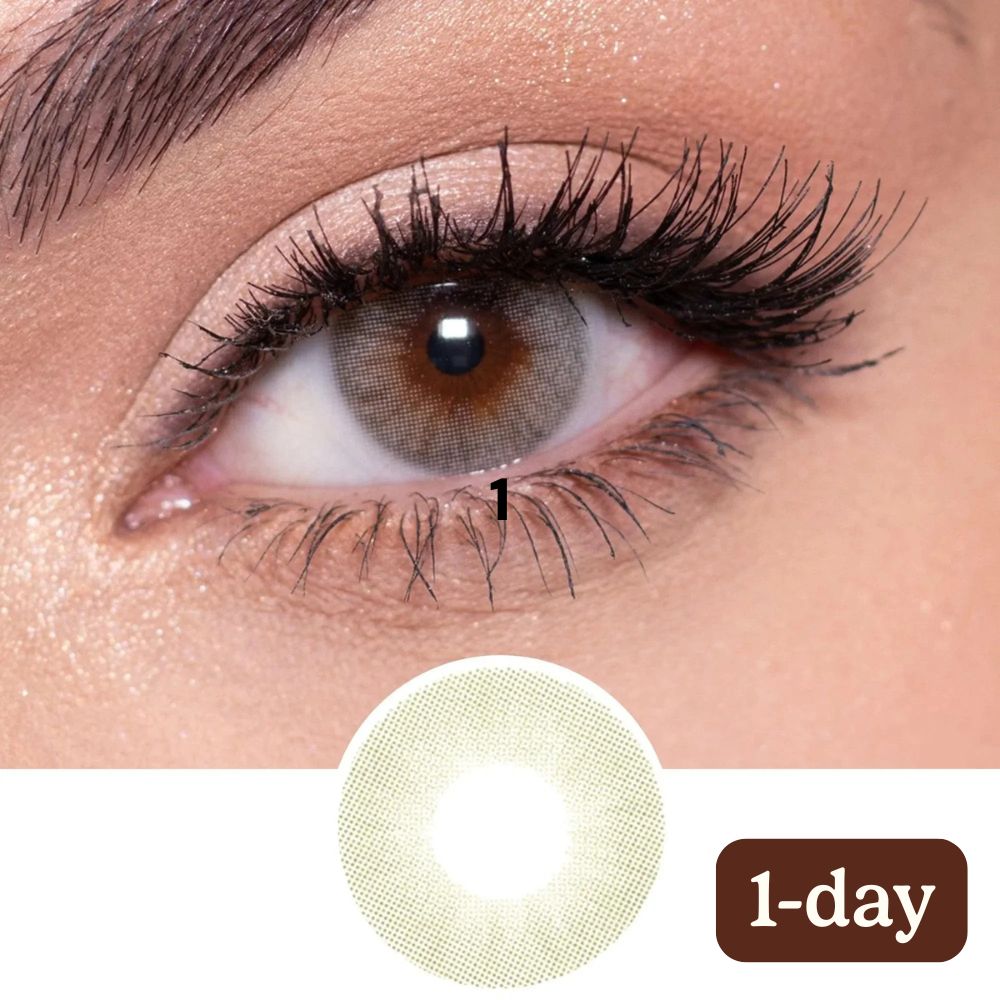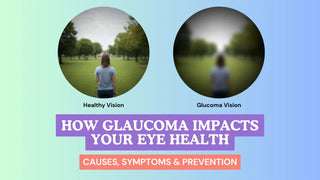What is Astigmatism and How Do I Know if I Have It?
In scrolling through the many contacts we offer, perhaps you’ve come across our variety of astigmatism contact lenses. And maybe you’re wondering - should I be wearing lenses for astigmatism? Do I have astigmatism? How would I know? Well, as always, we’re here to help answer some of your most burning eye health questions.
What is Astigmatism?
Well, a basic astigmatism definition is that it is a refractive error - a condition that affects how light reaches the retina. Retina is the tissue at the back of the eye. This is where images are formed and then sent to the brain. So, of course the way light reaches the retina can have a huge impact on our sense of sight. Light refracts - or bends, as it passes through the cornea - hence “refractive error.”
This may sound like a pretty rare condition. But, actually astigmatism is pretty common. Astigmatism affects about 25% of adults aged 50-59 and 50% of adults aged 60 and over. Young people can also be affected by astigmatism.
Can Children Have Astigmatism?
Children can absolutely experience astigmatism. Often, this will go undetected in children as they may not recognize the symptoms. For example, if a child has always experienced blurry vision and has never seen images clearly, he/she may not complain of blurred vision as a symptom.
It is important to have your child’s vision tested regularly as vision problems can commonly lead to having trouble in school, particularly with reading. All too often, students struggle with academic work and fall behind due to vision challenges that are easily corrected or treated once diagnosed.
What Causes Astigmatism?
Astigmatism occurs when there is an irregular shape to the eye’s cornea or lens. An irregular shape causes light to reach the retina at multiple points, rather than just one. There is no one specific known cause of this irregular shape. It is thought that it can be a result of genetics or development, or a combination of both. Astigmatism also can develop after an eye disease, injury, or surgery.
What are the Symptoms of Astigmatism?
Astigmatism symptoms can include eye strain or headaches, blurry vision, distorted vision, or discomfort caused by reading. Some people with astigmatism find that they squint to see better or avoid reading tasks as they are uncomfortable and cause eye strain. If you experience any of these symptoms, we recommend seeing your doctor for an eye exam.
How Do I Know If I Have Astigmatism?
If you suspect you may have astigmatism, we recommend seeing your eye doctor for a routine eye exam. There is an astigmatism test to help diagnose astigmatism and develop a treatment plan to help support your vision.
If you’re like us and you prefer a more immediate answer, there is a simple astigmatism test you can perform here and now. Keep in mind, we do recommend seeing your eye doctor to confirm the results and provide the diagnosis and treatment plan. There is no substitute for quality medical care.
However, if you suspect you may suffer from astigmatism, here is a simple test.
- Keep a normal distance from your screen and view the images without glasses or contact lenses.
- Look at the image, covering one eye with your hand. Repeat covering the other eye.
Are all the lines in this picture the same? If not, and some lines look bold or blurry, you may have astigmatism.
What do you see in this picture?
If you see Pikachu, you may have astigmatism.
What number do you see below?
If you read 3240, you may have astigmatism. If you saw 1246, you may experience myopia. If the number you saw was 3246, you may have a combination of astigmatism and myopia. And if you read 1240, you can assume your eye is healthy (though again you’d want to confirm with your physician.
If any of the above astigmatism tests caused concern, you should make an appointment with your eye doctor to determine what your treatment options might be.
Can Astigmatism Go Away?
Typically, astigmatism does not go away on its own. Sometimes, an astigmatism can be caused by another medical condition, such as inflammation. In this case, treating the underlying condition can cause improvement in astigmatism.
Can Astigmatism Be Prevented?
Often, astigmatism seems to run in families, meaning it cannot be prevented. In cases where astigmatism occurs as a result of an eye injury, disease, or surgery, treating the underlying issue may reduce the astigmatism.
What are the Treatment Options for Astigmatism?
Some people with astigmatism choose to treat the condition with the use of glasses. Contact lenses can also be an option. For highly irregular astigmatism, rigid contact lenses may provide superior vision than eyeglasses. There are often limitations for very large amounts of astigmatism with soft contact lenses. Surgery is another treatment option. This is especially common in those who also experience dry eye or other barriers to wearing contact lenses or eyeglasses. The most common type of surgery to correct astigmatism is LASIK. LASIK involves removing corneal tissue with a laser to change the corneal curvature. Astigmatism can be reduced or eliminated by changing the corneal curvature appropriately.
How Do I Find Contacts for Astigmatism?
Well, luckily for all of us, contact lenses have come a long way over the past few decades. There are now contact lenses designed specifically for those of us who experience astigmatism. Not all lenses will fit correctly or correct the curvature appropriately. But, toric lenses are created specifically with astigmatism in mind. In fact, in order to purchase toric lenses, you’ll need a prescription from your doctor with precise measurements. That’s because toric lenses are custom-built to your unique eye measurements. You’ll likely need to wait a bit longer to receive your astigmatism contact lenses. But, you can rest assured they will fit you perfectly and offer you clear and precise vision. Where can you find toric lenses? EyeCandys stocks not only clear toric lenses, but a wide variety of gorgeous hues as well. Take a peek for yourself here! Rest assured, whether you do indeed suffer from astigmatism - or are blessed with clear, perfect vision, you’ve got tons of contact lens options from EyeCandys!









